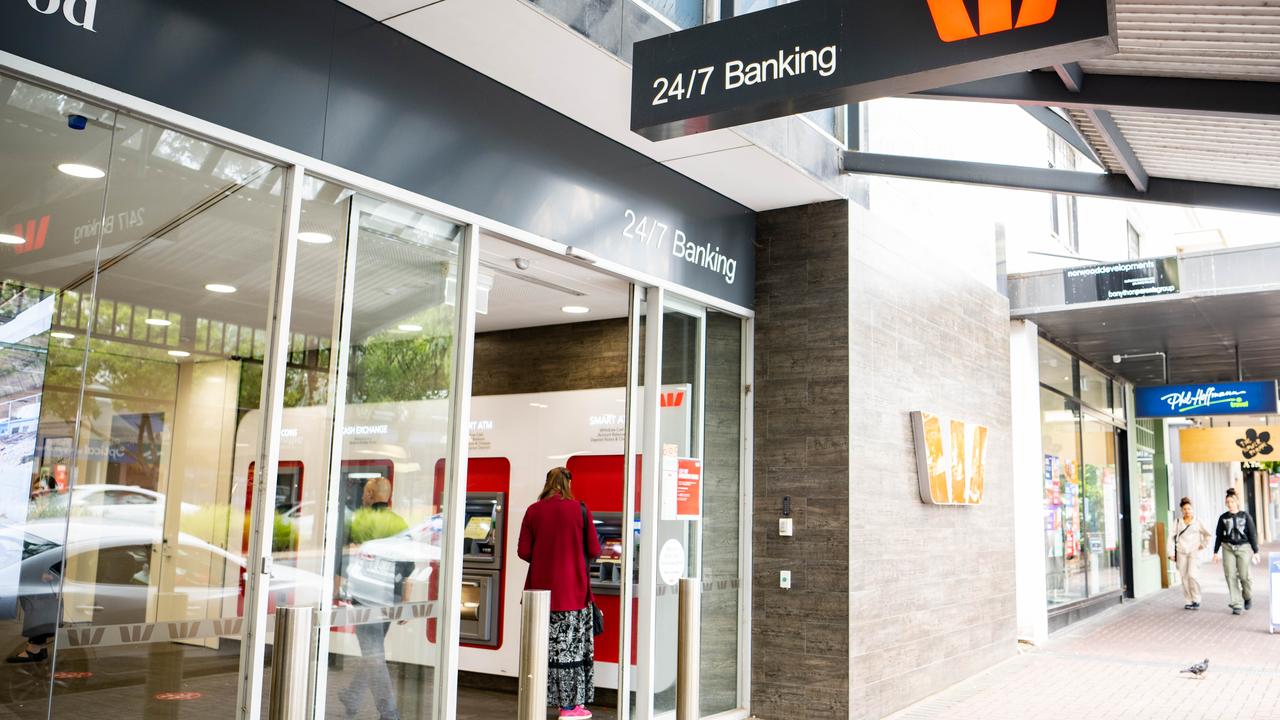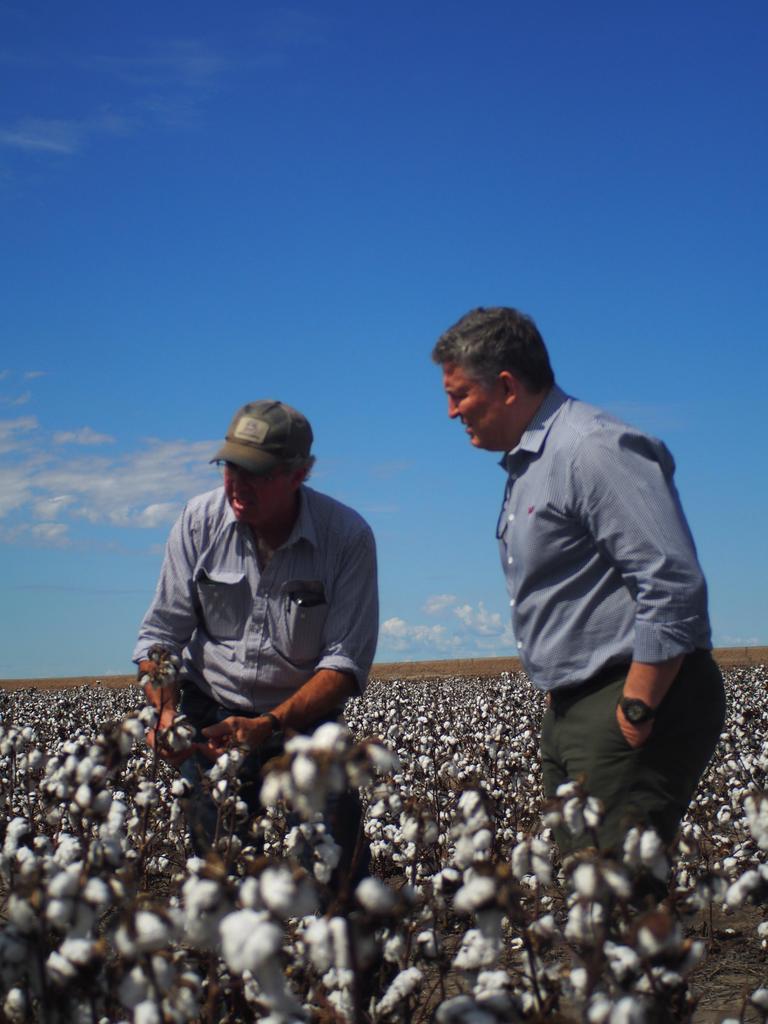Labor win an ‘enormous positive’ for Australia, says Westpac boss Anthony MIller
The big four CEO believes there are ‘many opportunities’ for Labor to drive the economy forward amid global uncertainty, and says Australia needs to reduce its reliance on China.

Business
Don't miss out on the headlines from Business. Followed categories will be added to My News.
Labor’s election win is an “enormous positive” for the nation and gives the second-term government an opportunity to grow the economy and in turn reduce Australia’s reliance on China, according to Westpac chief executive Anthony Miller.
Mr Miller, after handing down his maiden result for Westpac since taking the top job at the bank in December, said Labor’s re-election provided valuable consistency and certainty for Australia, which the government should use to its advantage.
“We think it’s an enormous positive for the country and in the battle to win talent and to bring capital in, to invest and to grow the country, I think it sets us up very well,” Mr Miller said on Monday.
Labor now has the chance to drive the economy by targeting the productivity slump, a long-term problem the government cannot fix on its own. The productivity recession is a national challenge that needs a better solution, he said.

“Industries, sectors need to be clear about how they intend to lift productivity, and that does involve some participation by government in terms of policy, but it is also about the regulatory environment. The regulators have a role to play here, and so a bit more of a whole-of-sector approach is needed to driving productivity (growth).”
Global instability and US tariffs on its trading partners should also result in Australia distancing itself from an over-reliance on China, he predicted.
“The real challenge that sits in front of Australia is that we now need to very actively start thinking about adjusting and changing the composition of the (China) opportunity. Being reliant upon exports to China to drive some of the opportunities in Australia, in my mind, is something we should work hard to minimise and reduce, in terms of the risk for us as we go forward,” Mr Miller told The Australian.
“If we’re going to get housing right, a lot of investment has to be undertaken. A huge amount of investment and activity is also needed if we’re going to get the (energy) transition done. If we think about building out critical minerals and rare earths, that’s another really big opportunity for Australia.
“Then there’s the defence ecosystem that you would have to build to really be part of AUKUS – that is a nation-building opportunity and represents a really unique opportunity for us to create growth, grow the economic pie in Australia for all Australians, and minimise or start to reduce the challenge of being overly reliant upon one market. We can find our way through this if we go after those opportunities,” he said.
Labor has promoted a positive economic outlook for its second term, he added, noting the global uncertainty overshadowing domestic politics and the economy.
“Getting things done methodically, as opposed to boldly going in different and new directions, is something to be thoughtful about,” Mr Miller said.
Earlier, Westpac revealed its aggressive business lending push delivered double-digit growth in the segment in the first half of the bank’s 2025 financial year but higher costs and under-pressure margins hit its bottom line, with net profit sliding 1 per cent.
For the six months through to March 31, Westpac posted a net profit of $3.32bn, down 1 per cent on the prior corresponding period. Excluding notable items, net profit dipped 1 per cent to $3.5bn. That missed consensus estimates.
The bank’s share price dropped 3 per cent to $32.45 by the market close as investors looked to the threat of lower rates on margins as well as the competitive lending environment that will further pressure profitability.
The bank’s move to more aggressively target business lending resulted in loans in the segment jumping 14 per cent over the half to $106bn, while institutional lending lifted 15 per cent, to $107bn.
Overall, loans rose 5 per cent to $825bn, including housing loan growth of 5 per cent, or 0.9 times system.
Bank deposits also rose in the half, up 7 per cent to $697bn. Australian household deposits jumped 9 per cent.
Net interest income rose 2 per cent to $9.6bn.

But business and wealth’s net profit slipped 5 per cent to $1.1bn, while the consumer bank’s net profit rose 3 per cent on the March 2024 half but was down 3 per cent on the September 2024 half as margins came under pressure and costs pushed higher. Net profit in the institutional segment jumped 11 per cent on a year ago.
Core net interest margin, a measure of Westpac’s profitability from savings and loans, dropped 3 basis points on the prior half but was flat on the prior corresponding period, at 1.8 per cent.
Operating expenses rose 6 per cent to $5.7bn due to the bank’s technology simplification program, dubbed Unite, as well as third-party technology costs, increased software amortisation, and salary and wage growth, including hiring 119 more bankers.
The bank has guided to a $3bn spend on its Unite technology overhaul over the next four years as it looks to slim down its systems and processes in a bid to slash costs over the long-term. Of the 60 initiatives involved in the major tech project, four have completed and 41 are in progress.
Credit impairment charges fell over the half, with Mr Miller tipping the low point in the arrears cycle may have passed.
The credit impairment charge was 6 basis points of average loans, down from 9 basis points. “Households are proving resilient and levels of business stress remain low,” the bank said.
Westpac sees economic growth recovering from 1.2 per cent in 2024 to 1.9 per cent this year, with private demand likely to overtake the public sector as the primary driver of activity.
Citigroup banking analyst Thomas Strong said a key drag in the result was a competitive funding market to support the bank’s loan growth ambitions, adding investors would question the sustainability of this growth, particularly as more rate cuts loom.
Westpac declared an interim dividend of 76c per share, flat on the prior corresponding period and below analyst expectations of an 80c-per-share payout.
More Coverage
Originally published as Labor win an ‘enormous positive’ for Australia, says Westpac boss Anthony MIller









